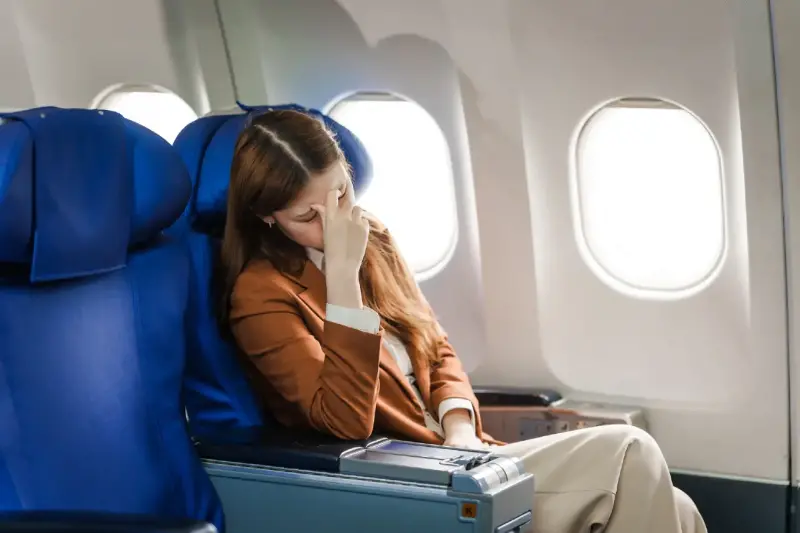Jet lag: a phrase that conjures images of adventure, far-off destinations, and—unfortunately—days spent feeling groggy, irritable, or just a bit “off” after a long flight. For many modern travellers, jet lag is the nemesis that can dull the thrill of arriving somewhere new. But what really goes on when jet lag strikes? How does it sneak up on us, and what surprising factors play into its effects? Unlocking the mystery of jet lag involves more than just knowing you’ve crossed time zones—there’s a fascinating mix of biology, psychology, and even the simple choices you make onboard the plane.

Understanding Jet Lag: Beyond the Obvious
Jet lag, medically known as desynchronosis, is the misalignment between your internal body clock—your circadian rhythm—and the local time at your destination. Your body clock is a complex system, regulated mainly by light exposure, that tells you when to sleep, eat, and be active. When you fly rapidly across several time zones, especially east or west, your body doesn’t instantly adjust to the new schedule. Instead, it remains partly anchored to the original time zone, leaving you battling tiredness at midday, wide awake at midnight, and generally feeling out of sorts for a few days.
What’s astounding is just how deeply the body clock runs our well-being. It regulates everything from hormone production (like cortisol and melatonin) to digestion and body temperature. Upset this natural order, and it’s no wonder travellers feel fuzzy-headed, forgetful, or moody. The extent and duration of jet lag depend on many factors, not just the direction of travel, but also your age, stress levels, and even whether you’re a “morning lark” or a “night owl.”
Eastward Vs Westward: Why Direction Matters
Not all jet lag is created equal, and the direction of your journey plays a surprising role. Eastbound travel (like a flight from London to Dubai) is generally tougher on the body than westbound (such as London to New York). That’s because our natural circadian rhythm is slightly longer than 24 hours, making it easier to stretch the day (as in westbound travel) than to shorten it.
When you travel east and “lose” hours, your body’s sleep-wake cycle struggles to advance earlier, often causing more severe symptoms: trouble falling asleep, early morning waking, and daytime fatigue. Travelling west, on the other hand, gives the body a little more time to catch up, and travellers tend to adapt more quickly. This directional sensitivity is one of jet lag’s most unique features.

Unexpected Influences: Beyond the Time Zones
While time zone changes are the main culprit, a whole host of unexpected factors can intensify or ease your jet lag experience. What you eat and drink, your exposure to natural light, your pre-flight sleep habits, and even your mental state all have roles to play.
Cabin pressure and humidity on modern jets, for example, can lead to mild dehydration, which amplifies fatigue. Alcohol and caffeine, often tempting during flights, may worsen jet lag by disrupting sleep further or causing you to dehydrate faster. Even your choice of in-flight entertainment can matter—blue light emitted from screens can suppress the sleep hormone melatonin, making it much harder for you to nod off at the right time.
One of the most fascinating findings in recent sleep science is the impact of gut bacteria. The microbiome in your digestive system operates on its own circadian rhythm, and crossing time zones can throw it into disarray, contributing to digestive discomfort and sleep disturbances. This connection between sleep and gut health is a new frontier in jet lag research and adds yet another layer to the mystery of why some people seem to suffer more than others.
Preparing to Outsmart Jet Lag: Sleep, Light and Strategy
Whilst you can’t hop off a plane and magically sync to a new time zone, preparation can make a noticeable difference. Leading up to travel, gradually shifting your sleep and meal times closer to your destination can help. If you’re flying east, try going to bed an hour earlier and waking earlier over several days prior to departure. For westward travel, go to bed later and wake up later.
On board, staying hydrated is more important than many people realise. Drink water throughout the flight and avoid excessive alcohol or caffeine. If your flight covers a daytime in your destination, try to stay awake and get natural light exposure as soon as you land. Sunlight is the most powerful tool for resetting your biological clock. Use sunglasses if you land at your destination’s night-time, shielding your eyes from bright light until you should be waking up.
Strategic use of melatonin supplements can also be effective, particularly for eastward trips, but it’s wise to consult a healthcare provider before use. Meanwhile, keeping physically active by stretching and walking during your flight can stave off stiffness and fatigue.

Surprising Personal Factors: Why Jet Lag Is Not the Same for Everyone
No two travellers experience jet lag in quite the same way. Age, gender, genetics, fitness, and even personality type can all influence how you respond to time zone shifts. Younger people often adjust quicker, yet older adults may be more susceptible to the health effects of sleep disruption. “Night owls” frequently fare better on westward flights, while “morning larks” may excel going east.
Stress and excitement play a role, too. Anticipatory anxiety about your trip or the demands waiting for you can add to sleep disruptions. Conversely, being mentally flexible—taking a positive, go-with-the-flow attitude—can minimise the sense of dislocation and help you bounce back quicker.
Jet lag remains a mystery to unlock with every flight, blending science and experience in equal measure. Understanding its surprising variables is the first step towards reclaiming your energy and making the most of every travel adventure, wherever in the world you land.
